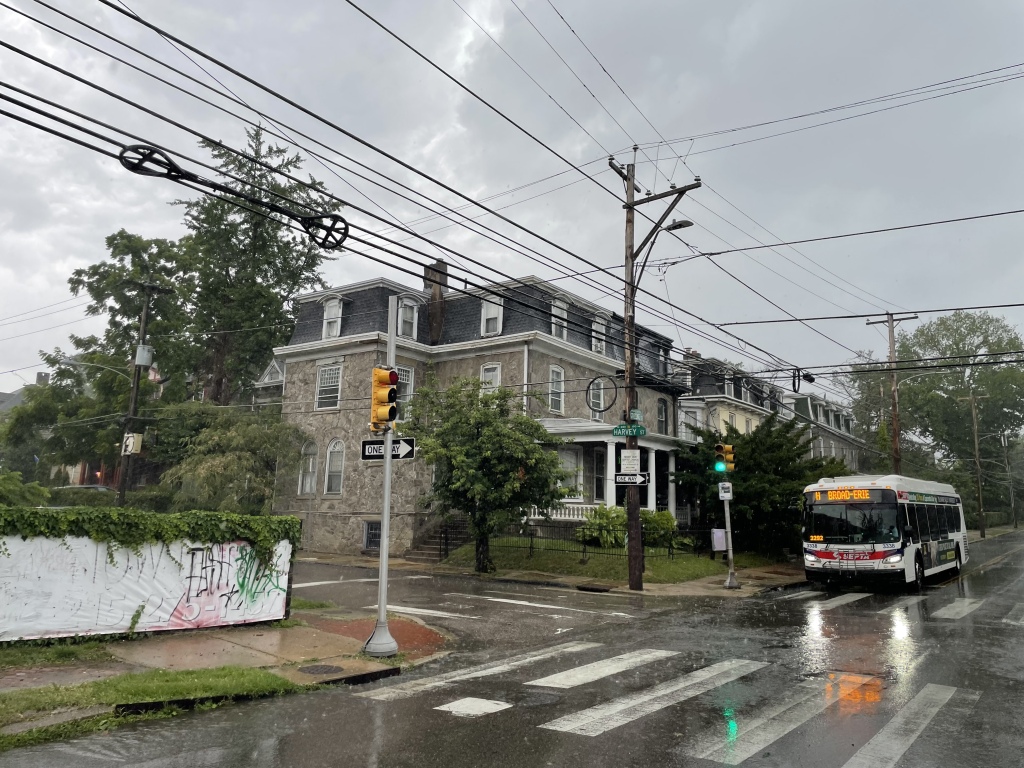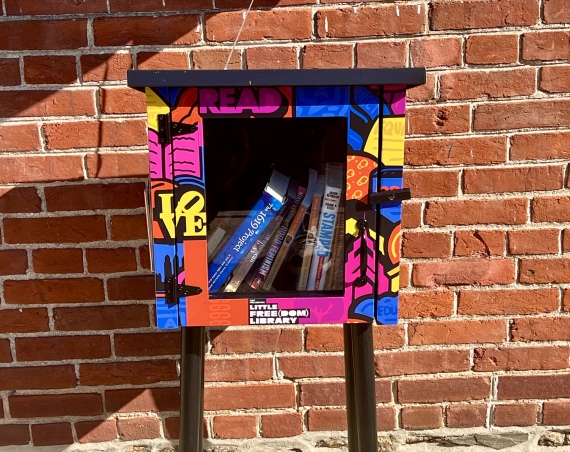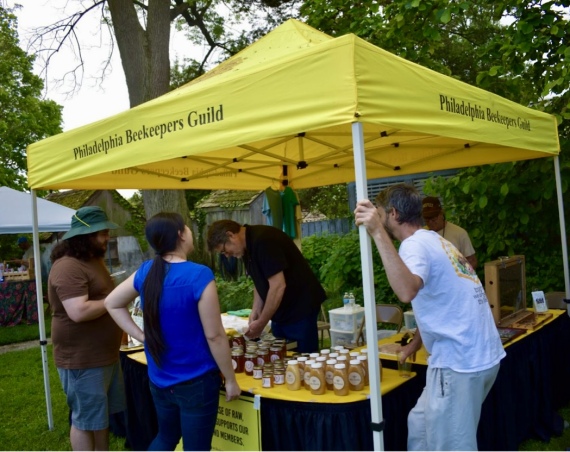Next steps: deciding on the final streets to start designing the bikeways and getting funding to start the project

Traffic safety has been an important issue in Northwest Philadelphia and Germantown neighbors have been especially engaged and activated to implement traffic calming measures after multiple neighborhood traffic deaths in the last two years.
It’s one of the reasons behind the new West Germantown Bikeways Project, a planning study out of the Office of Traffic and Infrastructure Systems (OTIS). OTIS and Germantown community organizations believe installing bikeways can slow down overall traffic in the neighborhood and keep pedestrians, bikers, and drivers safe.
Lydia Kenselaar, the Complete Streets manager at OTIS, focuses on the North and Northwest areas of the city and works on projects that relate to “complete streets”–making streets that are safer for all modes of travel: people walking, biking, taking transit, and driving.
She has been working alongside community groups like the Germantown Traffic Safety Coalition, Penn Knox Neighborhood Association, Friends of Vernon Park, and the Bicycle Coalition of Greater Philadelphia to set up community bike rides and community pop-up events to get direct feedback from neighbors.
“We’ve done pop-up events at various locations throughout Germantown. And those initial meetings were to ask people, where do you want to see neighborhood bikeway routes in Germantown? What places do you want to see connected?” said Kenselaar.
The bikeways project in Germantown was informed by data from Vision Zero Philadelphia, a program under OTIS. Vision Zero Philadelphia’s ultimate goal is zero traffic deaths in the city. It is a collaboration of OTIS and community organizers to prevent traffic deaths through the use of data on traffic injury hotspots, community engagement, street design, and policy work across government sectors.
They also have Vision Zero neighborhood ambassadors, who go to meetings and share information on traffic safety and calming measures. Local Germantown recording artist and mother Noelle Price-EL is a Vision Zero Ambassador. Price-El and her children were involved in a traffic violence incident that she is still recovering from–a hit-and-run accident that shattered her back window. It led to her interest in Vision Zero and their work.
Price-EL believes that the bikeways project could help calm traffic on streets overall. “Like, to keep it simple, it just has drivers be more conscious and be able to slow down traffic. You know, a lot of times these incidents occur from people speeding. So people are more conscious and knowing, like, they can’t drive a certain way within these roads, they’re able to slow down traffic as well as have more people be able to ride their bikes within these (bike)ways. I think that it will help people to be more aware,” said Price-EL.
These traffic safety and calming measures lead to safer “complete streets,” says OTIS, and they are currently in their final stage of community engagement and feedback. They will then decide what streets to start focusing on to design bikeways.
Kenselaar discussed their current stage: “Now we’re presenting the draft routes. So we are sharing a map that says, these are the streets where we’re going to focus on adding neighborhood bikeway treatments and traffic calming treatments, like adding speed cushions, adding curb extensions, communicating through pavement markings and signage that this is a shared street that is safe to use for people biking and people driving.”
At the June 11th meeting at Joseph E. Coleman Library, city planners and engineers from OTIS presented these draft routes based on their community feedback so far. The downstairs meeting room at the library had about twenty people come through to talk about the proposed routes. Folks like Price-EL, the Germantown Traffic Safety Coalition chair, Sharrieff Ali, and other concerned neighbors were in the room.
Folks gathered around the maps showing how the routes would be designed and where they would be—proposed routes are currently on Pulaski Avenue, Schoolhouse Lane, Coulter Street, Harvey Street, and McCallum Street. Many offered their opinions in conversation with city officials about what streets should be the first priority for these bikeways.
Molly Ward is a new neighbor in the Southwest area of Germantown. She and her partner came to the meeting because they and their nearby neighbors had real concerns about the traffic dangers on Morris Street. She likes the plans to have a bikeway on Pulaski Avenue. Still, she believes the speeding and lack of traffic calming measures on Morris leading to Roosevelt Boulevard make it difficult for all the kids on their block to even be out on the sidewalk.
At the meeting, Ward talked to many city officials, wrote down her concerns, and noted how important feedback from people who actually live in the neighborhood is.
“This is a good reason to actually go to meetings and talk to people. They made an assumption that one of the reasons they were going to put the bikeway on Pulaski was because it intersected so many parks and schools,” said Ward.
At the meeting, she told them that Kelly School and Happy Hollow Playground do touch Pulaski Avenue, but the entrances people actually use are on Morris Street and Wayne Avenue.
All of this feedback was recorded in the meeting notes, which OTIS will use to decide exactly what streets to work on first.
“We know what the data says about this area, but we want to hear from folks. We want to hear from folks on the street and who live here because you see it every day, and you know how it functions at different times of day where we might not see it. And so the thing about this survey is we’re asking where these neighborhood bikeways should go first because we need to start somewhere”, said Jeannette Brugger, a bicycle and pedestrian coordinator at the office of multimodal planning at OTIS.
The office will prioritize the survey responses and direct feedback from these meetings when designing routes and then proceeding to find funding. Federal and local grants are some sources of funding they will pursue, and community engagement is the first part of the process.
The West Germantown Bikeways Project will keep the online survey open until the end of July 2024. You can fill it out here. If you have any questions or feedback about the proposed routes, please contact otis@phila.gov.



